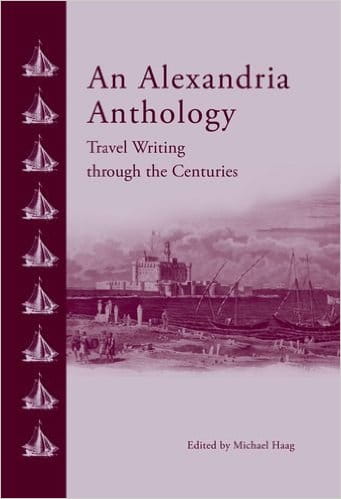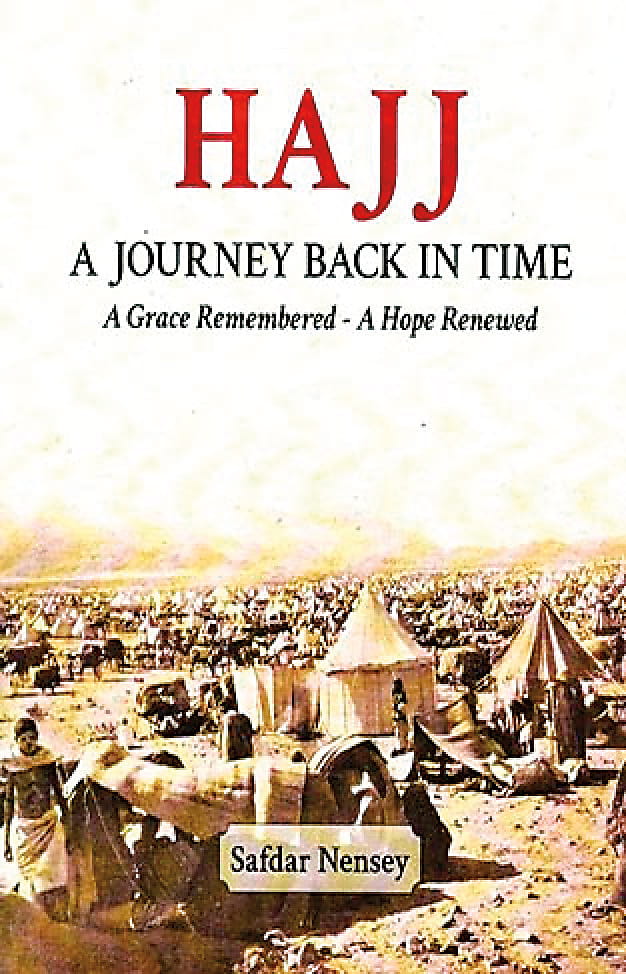
An Alexandria Anthology: Travel Writing through the Centuries
Robert W. Lebling
Michael Haag, ed.
2014, AUC Press, 978-77416-672-3, $18.95 hb.
“Alexandria. At last. Alexandria, Lady of the Dew. Bloom of white nimbus. Bosom of radiance, wet with sky-water. Core of nostalgia steeped in honey and tears…. Alexandria, I am here.”
This collection of short writings by travelers from Plutarch to Naguib Mahfouz depicts Alexandria from its founding on Egypt’s Mediterranean coast by Alexander the Great, to its Hellenistic golden age, to Roman rule, to the Arab conquest, Alexandria’s rebirth under the pasha Muhammad Ali and its move toward modernity amid the world wars and into today’s era. Some of the works are impressionistic, some starkly realistic, others humorous, melancholy, informative or poetic. Ibn Battuta writes of his 1326 visit, when he viewed the remnants of the legendary Pharos lighthouse. Florence Nightingale (1849) surprises the reader with adventure, as she luxuriates in Pompeian baths, wages war against mosquitos and describes riding one of Alexandria’s sturdy little donkeys, which “runs like a velocipede.” Rich portraits of early 20th-century Alexandria are furnished by the likes of E.M. Forster, Constantine Cavafy and Lawrence Durrell. Durrell’s friend Gwyn Williams describes a chilling descent into the little-known catacombs at Kom el-Shogafa. Amid all this, we are constantly reminded of Durrell’s reference to Alexandria as a “dream city,” where the glorious past hovers over the reality of a sometimes drab but ever genteel (and essentially Levantine) seaside metropolis.
This collection of short writings by travelers from Plutarch to Naguib Mahfouz depicts Alexandria from its founding on Egypt’s Mediterranean coast by Alexander the Great, to its Hellenistic golden age, to Roman rule, to the Arab conquest, Alexandria’s rebirth under the pasha Muhammad Ali and its move toward modernity amid the world wars and into today’s era. Some of the works are impressionistic, some starkly realistic, others humorous, melancholy, informative or poetic. Ibn Battuta writes of his 1326 visit, when he viewed the remnants of the legendary Pharos lighthouse. Florence Nightingale (1849) surprises the reader with adventure, as she luxuriates in Pompeian baths, wages war against mosquitos and describes riding one of Alexandria’s sturdy little donkeys, which “runs like a velocipede.” Rich portraits of early 20th-century Alexandria are furnished by the likes of E.M. Forster, Constantine Cavafy and Lawrence Durrell. Durrell’s friend Gwyn Williams describes a chilling descent into the little-known catacombs at Kom el-Shogafa. Amid all this, we are constantly reminded of Durrell’s reference to Alexandria as a “dream city,” where the glorious past hovers over the reality of a sometimes drab but ever genteel (and essentially Levantine) seaside metropolis.
